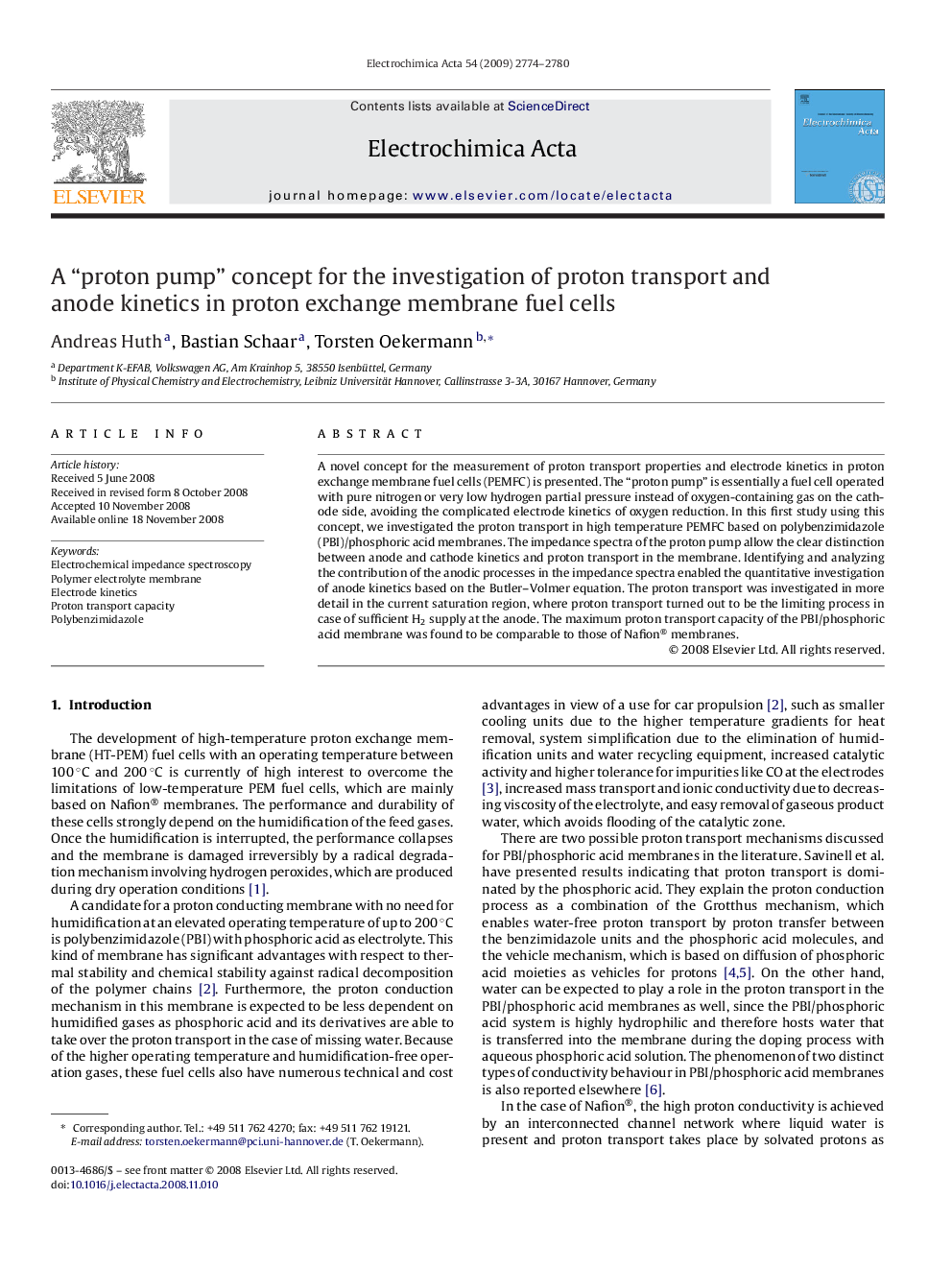| Article ID | Journal | Published Year | Pages | File Type |
|---|---|---|---|---|
| 192618 | Electrochimica Acta | 2009 | 7 Pages |
A novel concept for the measurement of proton transport properties and electrode kinetics in proton exchange membrane fuel cells (PEMFC) is presented. The “proton pump” is essentially a fuel cell operated with pure nitrogen or very low hydrogen partial pressure instead of oxygen-containing gas on the cathode side, avoiding the complicated electrode kinetics of oxygen reduction. In this first study using this concept, we investigated the proton transport in high temperature PEMFC based on polybenzimidazole (PBI)/phosphoric acid membranes. The impedance spectra of the proton pump allow the clear distinction between anode and cathode kinetics and proton transport in the membrane. Identifying and analyzing the contribution of the anodic processes in the impedance spectra enabled the quantitative investigation of anode kinetics based on the Butler–Volmer equation. The proton transport was investigated in more detail in the current saturation region, where proton transport turned out to be the limiting process in case of sufficient H2 supply at the anode. The maximum proton transport capacity of the PBI/phosphoric acid membrane was found to be comparable to those of Nafion® membranes.
